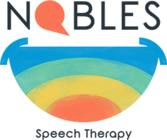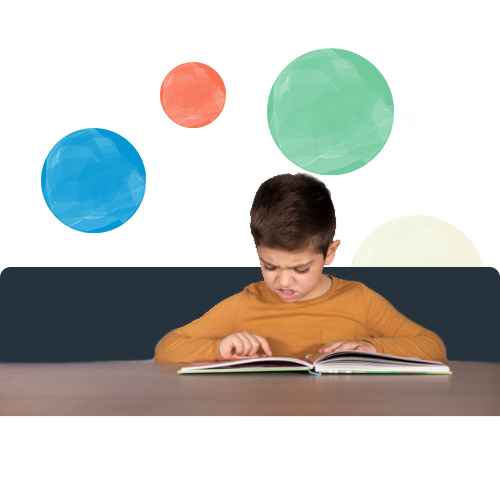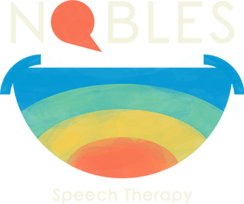We accept CareFirst BlueCross BlueShield and United Health Care Insurance.
Speech Therapy for Dyslexia: Helping Your Child Succeed
At Nobles Speech Therapy, we offer personalized speech therapy services to help your child with dyslexia build confidence and essential learning skills for success.
Speech Therapy for Ages 2-18
Share this page:
Overcoming Dyslexia with Nobles Speech Therapy
At Nobles Speech Therapy, we understand the frustration and worry of finding a suitable treatment for dyslexia. The stress and uncertainty about your child’s dyslexia diagnosis and treatment can make you feel alone. However, we are here to help build a strong support network for you and your child.
We offer comprehensive, effective speech therapy for dyslexia designed to help children overcome their challenges. We teach your child strategies to become more engaged in their schoolwork through fun sessions and activities they practice with you at home. Parent involvement helps improve outcomes while ensuring you monitor your child’s progression session by session.
How it Works
Step 1. Comprehensive Dyslexia Assessment
We conduct an in-depth evaluation of your child's speech, language, and communication needs related to their dyslexia, identifying their strengths and areas for improvement.
Step 2: Personalized Dyslexia Treatment
Based on the assessment, we create a tailored treatment plan focusing on decoding, phonological awareness, language, fluency, and reading comprehension. The plan includes one-on-one sessions and personalized at-home techniques to meet your child's specific needs.
Step 3: Ongoing Support & Collaboration
We work with you, schools, and other providers to ensure your child receives consistent support and guidance in managing their dyslexia. We provide materials and strategies to reinforce each lesson at home, helping your child practice and strengthen their newly acquired skills.
Step 4: A Future Filled With Potential
As your child engages with our personalized dyslexia treatment program, you can begin to see the changes in their speech, language, reading, and overall confidence. These improvements go beyond the classroom, enhancing their social well-being and increasing their potential for success in future endeavors.
Why Nobles Speech Therapy
Choosing Nobles Speech Therapy for your child's speech and language development provides several benefits:
Built Around Your Child
Our approach is designed to meet the unique needs of each child, utilizing successive building blocks to help them master foundational communication skills and gain confidence for social and academic success.
Exciting and Fun
Our creative teaching techniques, combined with patience, understanding, and a genuine rapport with your child, create a safe and enjoyable learning environment. Our one-on-one sessions transform reluctant attendance into enthusiastic engagement.
Team Effort
We believe in working together with parents, schools, and other providers to create a comprehensive support system for your child. We keep you actively involved with weekly updates and materials for at-home practice and reinforcement.
Hear It From Our Satisfied Clients
Hear from our clients and families about how we have changed their lives:
Ready to Help Your Child Overcome Dyslexia?
Don't wait any longer to give your child the support they need to overcome their dyslexia challenges. Start their journey towards improved speech, language, reading, and overall confidence with our personalized
dyslexia treatment program.
Scheduled a confidential consultation and discover how we can help your child reach their full potential.
Share this page:



